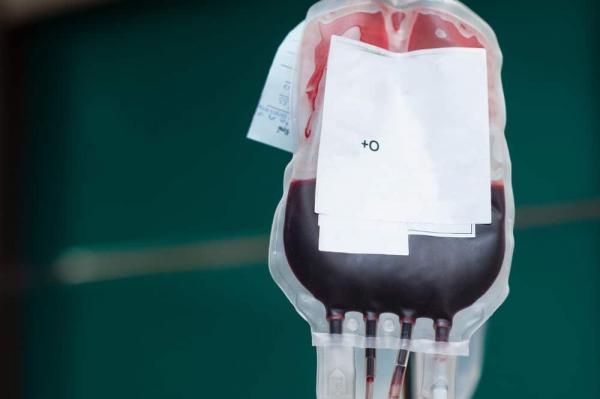
Studies show 10 to 25 percent of all clinically recognized pregnancies end up in a miscarriage, according to the American Pregnancy Association. And while research can't pinpoint the cause of every miscarriage, there are causes that can and cannot be prevented. Surprisingly, your blood type might be one of those not-so-preventable factors that increase your risk of miscarriage - especially if you are type O.
1. Declining Egg Health
There haven't been any definitive studies, but preliminary research has shown that mothers with type O blood can negatively impact their own fertility and pregnancy health. In some situations, type O blood has been correlated with higher FSH levels - a sign of declining egg health - when compared to women with type A blood.
2. Blood Incompatibility
While you might not think to consider the blood compatibility of you and your spouse when trying to get pregnant, there are certain cases of A-B-O incompatibility that can cause problems with an unborn child. When the mother has type O blood and the baby has B blood type or A blood type (from the father), research has found that there's a 20 percent incompatibility rate which could result in newborn jaundice or a possible miscarriage.
3. The Rh Factor
Regardless of your blood type (A,B, AB, or O), each blood type is either positive or negative (called the Rh factor; if you carry a specific type of protein on the surface of your red blood cells, you are Rh positive. If you don't, you are Rh negative). There are potential issues if a Rh negative mother conceives with a Rh positive father. Normally, the blood of the fetus and the blood of the mother don't intermingle, but if it does happen, the mother's body may recognize the Rh protein (there's a 50 percent chance the fetus will be Rh positive in this situation) as foreign and reject the fetus.
Blood transfusions can also introduce problems; if an Rh-positive blood transfusion is needed for an Rh-negative mother risks such as miscarriage and ectopic pregnancy go up.
While you might not be able to prevent a miscarriage based on your blood type, these are only slight risks and complications that may occur. There are many stepsyou and your spouse can take to increase your chances of having a healthy baby. Things like eating a well-balanced diet, exercising moderately, avoiding drugs, smoking and alcohol, handling your stress and discussing your concerns with your gynecologist are all things you can do to help prevent a miscarriage.

